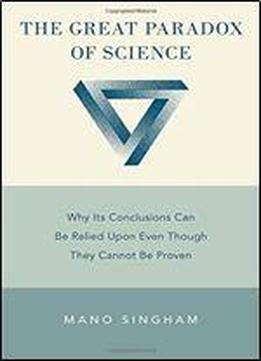
The Great Paradox Of Science: Why Its Theories Work So Well Without Being True
by Mano Singham /
2019 / English / PDF
4.1 MB Download
Science has revolutionized our lives and continues to show inexorable progress today. It may seem obvious that this must be because its theories are steadily getting better and approaching the truth about the world. After all, what could science be progressing toward, if not the truth? But scholarship in the history, philosophy, and sociology of science offers little support for such a sanguine view. Those opposed to specific conclusions of the scientific community-nonbelievers in vaccinations, climate change, and evolution, for example-have been able to use a superficial understanding of the nature of science to sow doubt about the scientific consensus in those areas, leaving the general public confused as to whom to trust, with damaging effects for the health of individuals and the planet. The Great Paradox of Science argues that to better counter such anti-science efforts requires us to understand the nature of scientific knowledge at a much deeper level and dispel many myths and misconceptions. It is the use of scientific logic, the characteristics of which are elaborated on in the book, that enables the scientific community to arrive at reliable consensus judgments in which the public can retain a high degree of confidence. This scientific logic is applicable not just in science but can be used in all areas of life. Scientists, policymakers, and members of the general public will not only better understand why science works: They will also acquire the tools they need to make sound, rational decisions in all areas of their lives.











